How Effective Is Pay Per Click Advertising?
Are you curious about the effectiveness of Pay Per Click (PPC) advertising? Well, you’ve come to the right place! In this article, we’ll explore the world of PPC advertising and discover just how powerful it can be in driving results for businesses. So, grab a seat and get ready to dive into the exciting world of online advertising!
Imagine this: you’re scrolling through your favorite website or social media platform when suddenly, an ad catches your eye. It’s for a product or service that you’ve been searching for, and it appears right in front of you, seemingly tailor-made just for you. How did that happen? That’s the magic of PPC advertising!
PPC advertising is an online marketing strategy that allows businesses to display ads across various platforms and pay only when a user clicks on their ad. It’s like having a salesperson who only gets paid when they bring you a customer. Sounds intriguing, right? Well, it gets even better. In this article, we’ll explore the ins and outs of PPC advertising, its benefits, and how you can leverage it to grow your business. So, buckle up and get ready for a wild ride into the world of PPC advertising!
Pay Per Click Advertising can be highly effective in driving targeted traffic to your website. By setting up targeted ads and strategically bidding on relevant keywords, you can reach your desired audience and increase your chances of conversions. However, the effectiveness of PPC advertising depends on various factors like keyword selection, ad copy quality, landing page optimization, and ongoing campaign management. Therefore, it’s important to carefully plan and monitor your PPC campaigns to maximize their effectiveness.
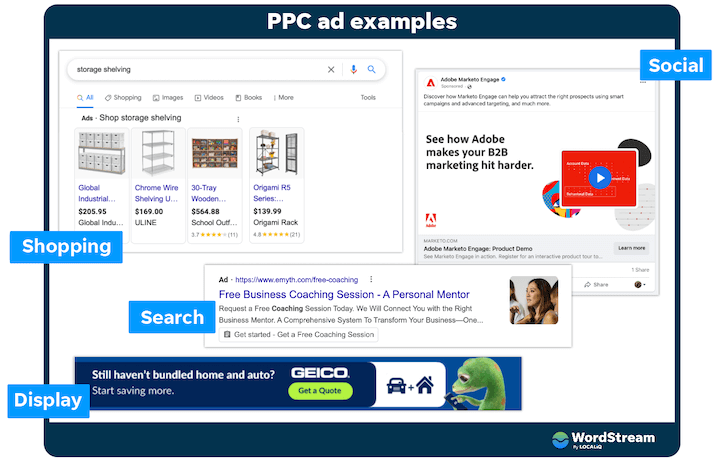
The Effectiveness of Pay Per Click Advertising
Pay per click (PPC) advertising has become a popular marketing strategy for businesses of all sizes. It offers a highly targeted and measurable way to reach potential customers online. But just how effective is PPC advertising? In this article, we will explore the benefits and drawbacks of PPC advertising, discuss its effectiveness compared to other marketing channels, and provide tips for maximizing its impact.
The Benefits of PPC Advertising
PPC advertising offers several key benefits that contribute to its effectiveness. Firstly, it allows businesses to target their ads to specific keywords and demographics, ensuring that their message reaches the right audience. This level of precision targeting can significantly increase the chances of conversion and maximize return on investment.
Additionally, PPC advertising provides instant visibility. Unlike organic search results, which require time and effort to improve rankings, PPC ads appear at the top of search engine results pages immediately after activation. This immediate visibility can generate immediate traffic and exposure for businesses, making it a valuable tool in time-sensitive campaigns or product launches.
Another advantage of PPC advertising is its measurability. Through various tracking tools and analytics, businesses can gain insights into their ad performance and understand the impact of their campaigns. By monitoring key metrics such as click-through rates, conversion rates, and cost per acquisition, businesses can optimize their campaigns in real-time and make data-driven decisions to drive better results.
PPC Advertising vs. Other Marketing Channels
While PPC advertising offers many advantages, it’s essential to understand its effectiveness compared to other marketing channels. In terms of cost-effectiveness, PPC advertising can be more efficient than traditional advertising methods such as print or television ads. With PPC, businesses only pay when their ads are clicked, ensuring that their budget is spent on actual engagement rather than wasted impressions.
Furthermore, PPC advertising can provide a higher level of targeting and personalization compared to other channels. By leveraging user data and behavior, businesses can deliver highly relevant ads to their target audience, increasing the likelihood of conversion. This level of targeting is challenging to achieve with traditional advertising methods.
However, it’s important to note that PPC advertising should not be considered a standalone solution. While it can deliver immediate results, it should be complemented with a strong overall marketing strategy. Businesses should consider integrating PPC with other channels such as SEO, content marketing, and social media to maximize their reach and impact.
Tips for Maximizing the Effectiveness of PPC Advertising
To get the most out of PPC advertising, businesses should follow these tips:
1. Conduct thorough keyword research: Before launching a PPC campaign, it’s crucial to research and select relevant keywords that align with the target audience’s search intent. Use keyword research tools and consider the competition and search volume to optimize your campaign.
2. Create compelling ad copy: Craft engaging and persuasive ad copy that entices users to click. Highlight unique selling points, include strong call-to-actions, and use relevant keywords to improve ad relevance and quality scores.
3. Optimize landing pages: Ensure that the landing pages users are directed to after clicking your ads are relevant, user-friendly, and optimized for conversion. A seamless user experience can significantly impact the effectiveness of your PPC campaign.
4. Continuously monitor and optimize: Regularly review and analyze your PPC campaign’s performance and make necessary adjustments to improve its effectiveness. Monitor key metrics, A/B test ad variations, refine your targeting, and adjust bids to maximize ROI.
5. Leverage remarketing: Implement remarketing campaigns to target users who have previously interacted with your website or ads. This can help increase brand recall and encourage users to take further action, boosting the overall effectiveness of your PPC efforts.
By following these tips and aligning PPC advertising with a comprehensive marketing strategy, businesses can maximize the effectiveness of their PPC campaigns and achieve their marketing goals.
PPC Advertising Strategies for Different Business Objectives
Driving Website Traffic
One of the primary goals of PPC advertising is to drive targeted traffic to a website. To achieve this objective, businesses should focus on optimizing their PPC campaigns to increase click-through rates. Here are some strategies to consider:
1. Optimize ad copy: Create compelling and relevant ad copy that entices users to click. Highlight unique selling points and include a clear call-to-action.
2. Use ad extensions: Utilize ad extensions such as sitelink extensions, callout extensions, and location extensions to provide additional information and increase visibility.
3. Improve landing page experience: Ensure that the landing page users are directed to after clicking the ad is relevant, user-friendly, and optimized for conversion. A seamless user experience increases the chances of engagement and conversion.
4. Target relevant keywords: Conduct thorough keyword research and select relevant keywords that align with your target audience’s search intent. Refine your targeting based on performance data and adjust bids accordingly.
Increasing Conversions
For businesses aiming to drive conversions, such as sales or lead generation, optimizing the entire conversion funnel is crucial. Consider the following strategies to increase conversions:
1. Implement conversion tracking: Set up conversion tracking to monitor and measure the actions users take after clicking your ads. This data will provide insights into the effectiveness of your PPC campaigns and help you make data-driven decisions.
2. Create compelling landing pages: Design landing pages that are user-friendly, visually appealing, and optimized for conversion. Use persuasive copy, clear call-to-actions, and forms to capture leads or facilitate purchases.
3. Utilize ad extensions: Leverage ad extensions such as call extensions or lead form extensions to make it easier for users to take action directly from the ad.
4. Set up remarketing campaigns: Implement remarketing campaigns to target users who have previously interacted with your website or ads. This can help increase conversions by reminding users of your brand and encouraging them to take further action.
Building Brand Awareness
PPC advertising can also be an effective tool for building brand awareness and increasing brand visibility. Consider the following strategies to enhance brand awareness through PPC:
1. Focus on top-of-funnel keywords: Target keywords that align with your brand and industry, even if they may not have a high conversion rate. This will help increase brand exposure and reach users who are at the early stages of the buying journey.
2. Utilize display network advertising: Expand your reach by leveraging display network advertising, which allows you to display visual ads on relevant websites. This can significantly increase brand visibility and exposure.
3. Implement video advertising: Take advantage of video advertising platforms such as YouTube to showcase your brand through engaging and informative videos. This can capture users’ attention and increase brand recall.
4. Use engaging ad formats: Experiment with different ad formats such as interactive ads, carousel ads, or rich media ads to make your brand stand out and create a memorable experience for users.
By tailoring your PPC strategy to align with specific business objectives, you can effectively leverage PPC advertising to drive website traffic, increase conversions, and build brand awareness.
Maximizing the ROI of PPC Advertising
To ensure that your PPC advertising efforts are not only effective but also cost-efficient, it’s essential to focus on maximizing the return on investment (ROI). Here are some tips to help you get the most out of your PPC advertising budget:
Target high-intent keywords
When selecting keywords for your PPC campaigns, focus on high-intent keywords that indicate a strong likelihood of conversion. These keywords usually contain specific product or service names, brand names, or keywords that align with users’ search intent when they are ready to make a purchase. By targeting these high-intent keywords, you increase the chances of reaching users who are more likely to convert, maximizing your ROI.
Optimize ad copy and landing pages for relevance
Relevance is key to improving the effectiveness of your PPC campaigns and maximizing your ROI. Ensure that your ad copy aligns with the keywords you are targeting and highlights the unique selling points that are most likely to resonate with your target audience. Additionally, optimize your landing pages to deliver a seamless user experience that matches the ad copy and facilitates conversion. By providing users with a consistent and relevant experience from click to conversion, you increase the likelihood of achieving a positive ROI.
Monitor and adjust bids
Regularly monitor the performance of your PPC campaigns and adjust your bids accordingly. Identify keywords or ad groups that are driving the most valuable traffic and consider increasing your bids for these top-performing keywords. Conversely, if certain keywords or ad groups are not delivering the desired results, reduce your bids or pause them altogether. By optimizing your bids based on performance data, you can allocate your budget more efficiently and maximize your ROI.
Test and optimize continuously
PPC advertising is an ongoing process that requires continuous testing and optimization to achieve optimal results. Test different ad copy variations, landing page elements, and targeting parameters to identify what works best for your target audience. Analyze the performance data and make data-driven decisions to refine your PPC campaigns and improve your overall ROI over time.
By implementing these strategies and continuously monitoring and optimizing your PPC campaigns, you can maximize the effectiveness of your PPC advertising and achieve a higher ROI. Remember to analyze the data and make informed decisions based on performance metrics to drive better results.
In summary, PPC advertising can be highly effective for businesses when implemented strategically. It offers precise targeting, instant visibility, and measurable results. By leveraging the benefits of PPC advertising, optimizing campaigns for specific business objectives, and maximizing ROI, businesses can harness its power to drive website traffic, increase conversions, and build brand awareness.
Key Takeaways: How Effective is Pay Per Click Advertising?
- Pay Per Click (PPC) advertising can be highly effective in driving targeted traffic to your website.
- PPC allows you to reach a specific audience by targeting keywords, demographics, and geographic locations.
- It offers quick results, as your ads can start appearing on search engine results pages immediately.
- PPC advertising provides measurable results, allowing you to track and analyze your campaign’s performance.
- However, it requires careful planning, monitoring, and optimization to ensure a positive return on investment.
Frequently Asked Questions
Here are some common questions about the effectiveness of pay-per-click advertising:
1. How does pay-per-click advertising work?
Pay-per-click (PPC) advertising is a model where advertisers pay a fee each time their ad is clicked. These ads are usually displayed on search engine results pages or on websites relevant to the advertiser’s target audience. Advertisers bid on specific keywords or placements, and when a user enters a search query that matches the advertiser’s keyword or visits a website with relevant content, the ad is shown. PPC allows businesses to reach their target audience and drive traffic to their website in a targeted and measurable way.
For example, if you sell running shoes, you can bid on keywords like “buy running shoes” or “best running shoes” so that your ads appear when people search for those terms. When someone clicks on your ad, they are directed to your website where they can potentially make a purchase.
2. How effective is pay-per-click advertising?
Pay-per-click advertising can be highly effective when implemented correctly. It allows businesses to reach their target audience at the right time and in the right place, increasing the chances of generating leads and conversions. PPC also provides instant visibility, as ads can be up and running within minutes.
However, the effectiveness of pay-per-click advertising depends on various factors such as campaign structure, keyword selection, ad copy, landing page design, and budget allocation. It requires continuous monitoring, testing, and optimization to achieve optimal results. With the right strategy and ongoing management, PPC advertising can drive valuable traffic, increase brand awareness, and deliver a positive return on investment (ROI).
3. What are the benefits of pay-per-click advertising?
Pay-per-click advertising offers several benefits for businesses:
Firstly, it provides targeted advertising, allowing businesses to show their ads to users who are actively searching for their products or services. This increases the likelihood of conversions and a higher ROI.
Secondly, PPC provides measurable results. Advertisers can track the number of clicks, impressions, and conversions, allowing them to measure the success of their campaigns and make data-driven decisions. This level of transparency is not always possible with other forms of advertising.
Lastly, pay-per-click advertising offers flexibility and control. Advertisers have the freedom to test different keywords, ad copy, and targeting options, and make adjustments based on performance. They can also set a budget and have full control over how much they want to spend.
4. Are there any disadvantages to pay-per-click advertising?
While pay-per-click advertising has numerous advantages, there are also some potential disadvantages to consider:
Firstly, PPC can be costly, especially for highly competitive keywords. Advertisers must bid against their competitors to secure ad placements, and this bidding process can drive up costs. It’s important to carefully manage and monitor your campaigns to ensure you are getting a positive return on your investment.
Secondly, PPC requires ongoing management and optimization. Advertisers need to constantly monitor their campaigns, test different strategies, and make adjustments to improve performance. This can be time-consuming, particularly for businesses with limited resources.
Lastly, pay-per-click advertising can be complex, especially for beginners. There are many variables to consider, such as ad targeting, bidding strategies, and ad quality, which can be overwhelming for those new to PPC. However, with proper research, education, and support, these challenges can be overcome.
5. How can I maximize the effectiveness of pay-per-click advertising?
To maximize the effectiveness of pay-per-click advertising, consider the following tips:
Firstly, conduct thorough keyword research to identify relevant keywords with high search volumes and low competition. This will increase your chances of reaching your target audience and driving qualified traffic to your website.
Secondly, create compelling and relevant ad copy that entices users to click on your ads. Make sure your ads align with the user’s search intent and highlight the unique selling points of your products or services.
Thirdly, ensure that your landing pages are optimized for conversions. Your landing pages should match the intent of the ad, have clear calls-to-action, and provide a seamless user experience.
Lastly, regularly monitor and analyze your campaign performance. Use the data to identify areas of improvement, such as underperforming keywords or ad placements, and make data-driven optimizations. Continuous testing and optimization are key to maximizing the effectiveness of your pay-per-click advertising campaigns.
The Best Pay-Per-Click Strategies For Small Businesses (PPC Ads)
Summary
Pay Per Click (PPC) advertising can be a powerful tool for businesses to reach their target audience online. With PPC, you only pay when someone clicks on your ad, making it a cost-effective option. However, it’s important to understand that PPC may not always guarantee immediate results or high conversion rates. The success of PPC campaigns depends on various factors like keyword research, ad design, landing page optimization, and ongoing monitoring and adjustments. It’s crucial to carefully plan and execute your PPC strategy to maximize its effectiveness.
While PPC can drive traffic to your website, it’s important to remember that it’s just one part of a broader digital marketing strategy. PPC should be complemented with other tactics such as search engine optimization (SEO) and content marketing to create a well-rounded and effective online presence. Monitoring your PPC campaigns and making necessary adjustments based on data and insights is key. By continually refining your strategy and targeting the right audience, PPC can be a valuable tool in helping your business succeed online.
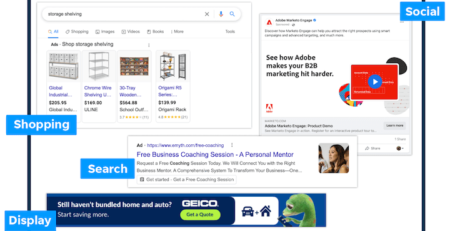
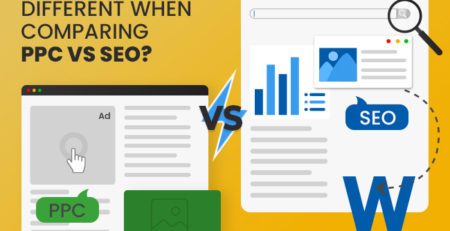
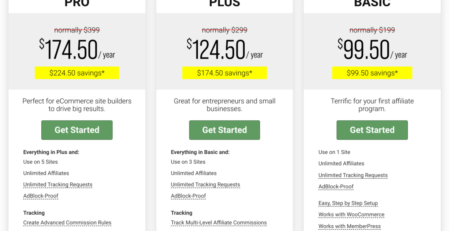
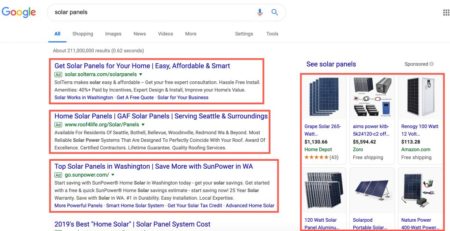

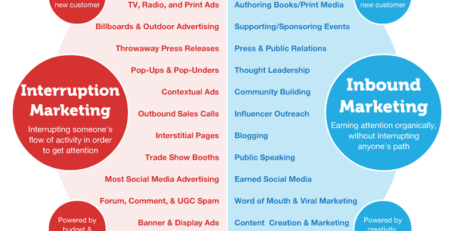
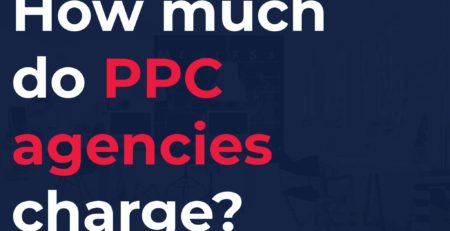
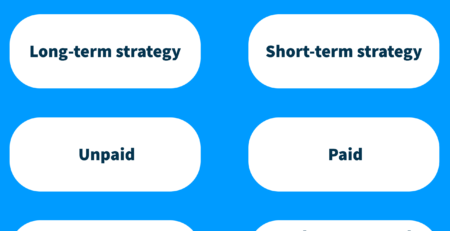
Leave a Reply